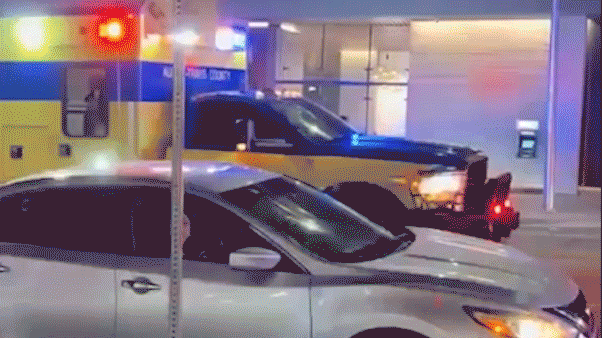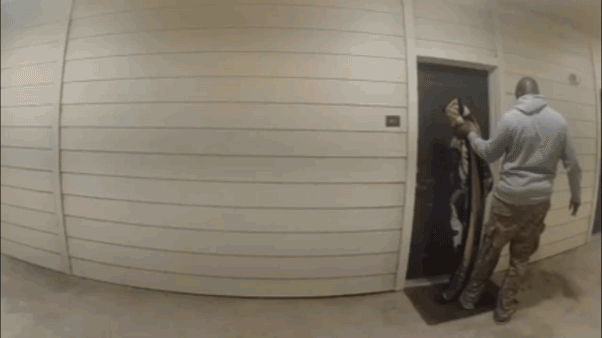ALTURAS, Calif. – Modoc County is wedged into California's far northeastern corner, a land apart from much of the rest of the nation's most populous state.
Little visited, the sparsely populated region of cave-riddled lava beds, sagebrush-covered plains and rolling ranch land has much in common with the rural areas of Oregon and Nevada that it adjoins.
Yet deep financial troubles tied to the county-owned hospital — the community's sole medical facility — have led Modoc County to the steps of the state Capitol and to the threshold of bankruptcy. Approaching Sacramento, hat in hand, at a time when the state itself has profound budgetary problems has cast the county in the glare of unwanted attention.
The modest, one-story Modoc Medical Center and its adjacent nursing home were a source of pride when they opened in the mid-1950s, when the county still had operating timber mills, jobs on the railroad and a larger population.
But the facility has been bleeding money for more than 15 years, with annual deficits ranging from $600,000 to $2.8 million in recent years, and the county has gone broke trying to keep the doors open. Monica Derner, interim chief executive officer of the hospital, says the financial trouble stems from mistakes made in the hospital's billing practices and a former administrator's decision to hire costly traveling nurses and doctors instead of retaining local staff.
Some residents think the hospital's problems are deeper than faulty systems or strategies.
"I hear nothing but horror stories coming out of there," said Ruth Adams, 49, a cashier at the Four Corners Supermarket. "My thought is that the administration, whoever's at the helm, is what needs to get fixed."
The county has hired a bankruptcy attorney as it contemplates becoming just the fourth California city or county government in modern times to seek bankruptcy protection.
State and county officials are negotiating conditions of a two-loan package totaling $16.5 million, not a pleasant scenario for many residents of the remote, heavily Republican county who pride themselves on self-reliance. State finance officials are balancing their fears of setting a bailout precedent against their desire to avoid a local government bankruptcy filing.
"The county doesn't seem to have a defined plan on how they're going to get out of the situation," said Don Demsher, 75, a retired school superintendent who is part of an informal group seeking ways for the county to balance its books without state loans. A month ago county officials were on the edge of a cliff, Demsher said, and now they're in the abyss.
The county's predicament became widely public last month with the loan requests. The largest, $12.5 million, would enable the county to repay money it has improperly borrowed from other county accounts to keep its hospital afloat. The money was meant for other purposes — such as roads and education projects, and borrowing it was a violation of state law, according to the state controller's office.
The county has been instructed to repay the money quickly, leaving bailout or bankruptcy as primary options.
The smaller of the two requests, $4 million to help pay county salaries and day-to-day operating expenses, may be off the table, officials said.
Residents are voting by mail this month to decide whether to increase their taxes to try to save the hospital. The ballot propositions, Measures Q and R, would charge each property owner an extra $195 a year in parcel taxes and create an independent health care district to run the hospital, taking responsibility away from county supervisors. The voting period ends Aug. 31.
Supporters say the parcel tax would raise an additional $3.1 million annually.
"I've seen this hospital save hundreds of lives, and it saved at least four of my friends' lives this year," said Mike Mason, a retired sheriff's sergeant who is leading the effort to approve the parcel tax.
Modoc Medical Center, located in the county seat of Alturas, is just off the town's Main Street of diners, antique shops, a propane store and homes with white picket fences. It is one of the largest employers in the county. The next closest hospital is only 20 miles away, but that is over mountain roads that are often closed by snow in winter.
Ambulance service also is in jeopardy if the parcel tax fails.
Mason, wearing his straw hat, has been going door-to-door asking residents to support the ballot measure. But he acknowledges he is in a tough fight in the deeply conservative county, where voters in 2008 went for GOP presidential candidate John McCain, 68 percent to 30 percent, over Democrat Barack Obama, who won California in a landslide.
Raising taxes is an emotional issue among residents. Trust in government has worn thin.
"There's an absolute thought that there should be no more taxes," Mason said. "Yes, I'm a Republican. But first I'm a human, and you've got to take care of your people."
Doug Knox, a retired rancher, said additional taxes will prompt many residents to sell their land, resulting in even less tax revenue. He lives on a 520-acre ranch in the sagebrush-covered hills above Alturas and spreads his opposition message by running ads on local radio stations.
Many Modoc County residents are ranchers or retirees who savor the solitude. Modoc County encompasses a region twice the size of Delaware, yet has just 9,100 residents, according to U.S. Census figures. It was one of the few California counties to lose population over the past decade.
The level of care at the hospital has already been affected. The hospital no longer delivers babies or performs surgeries. The surgeon left, and the hospital could no longer afford to have an anesthesiologist on staff.
Dr. Martin Kernberg, who travels to the medical center one week per month to serve as an emergency room physician and radiologist, said the facility is critical to those who need emergency care and can't wait the hour it would take to reach another hospital.
"And if we can't stabilize those patients in that hour, that puts them at the risk of life or death," he said.
Then there are patients who live in the hospital's nursing home, Warnerview. Judith Dickinson, 64, who was born with spinal problems, said she doesn't know where she would live if it closed.
Mason says approving the parcel tax would prove Modoc County's ability to care for its own.
"If anyone's going to experience life in rural America today," he said, "they have to be willing to help themselves."
David Bourland, a 54-year-old retired truck driver, isn't buying it. He said he would rather see the county declare bankruptcy than pay another tax.
"I knew the hospital was using money they shouldn't have," Bourland said. "I should not have to pay for something I don't want to use."









































